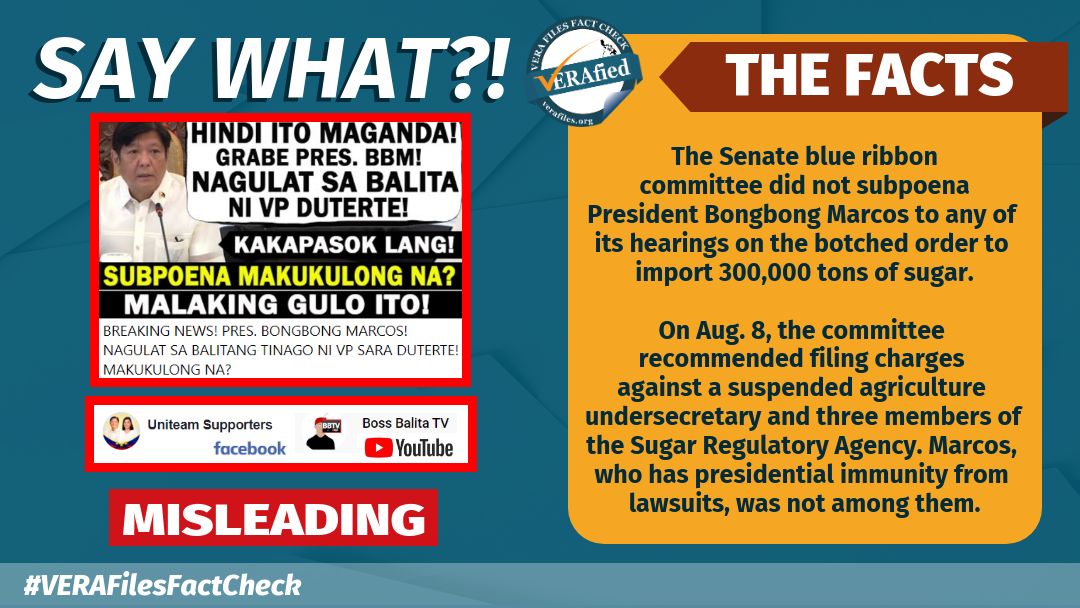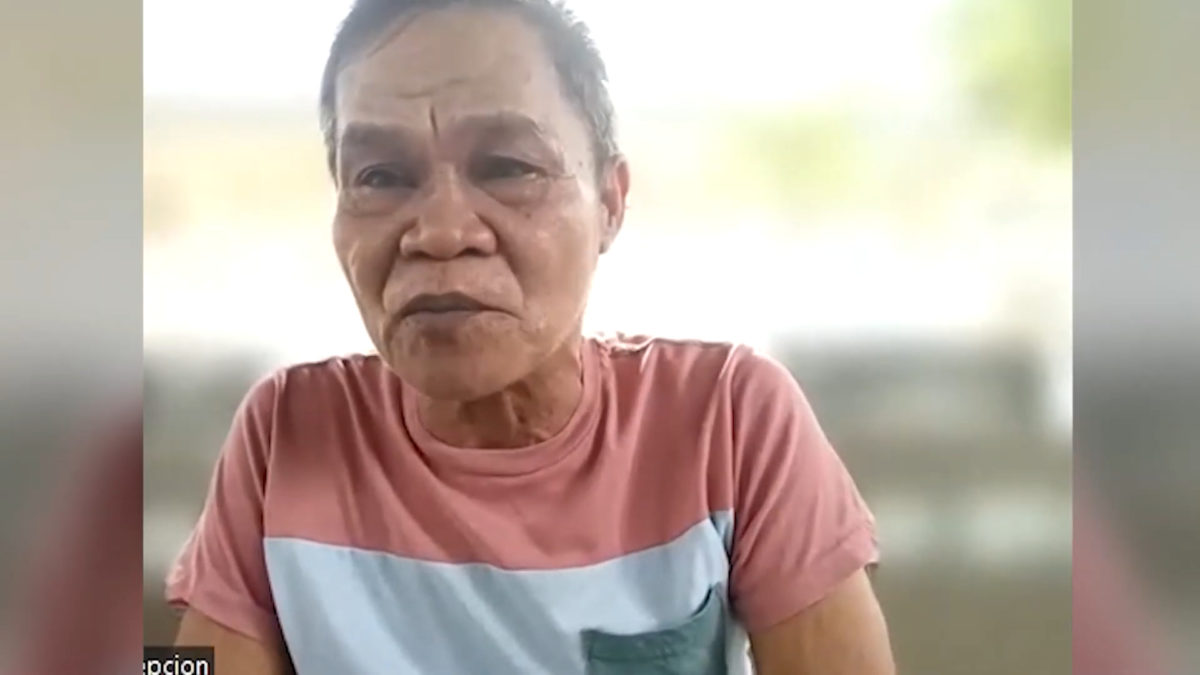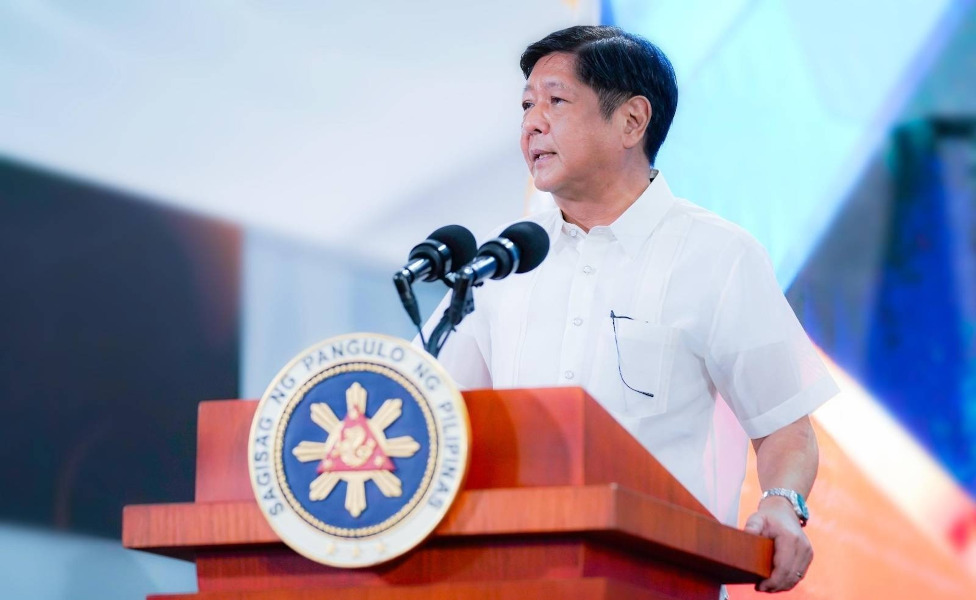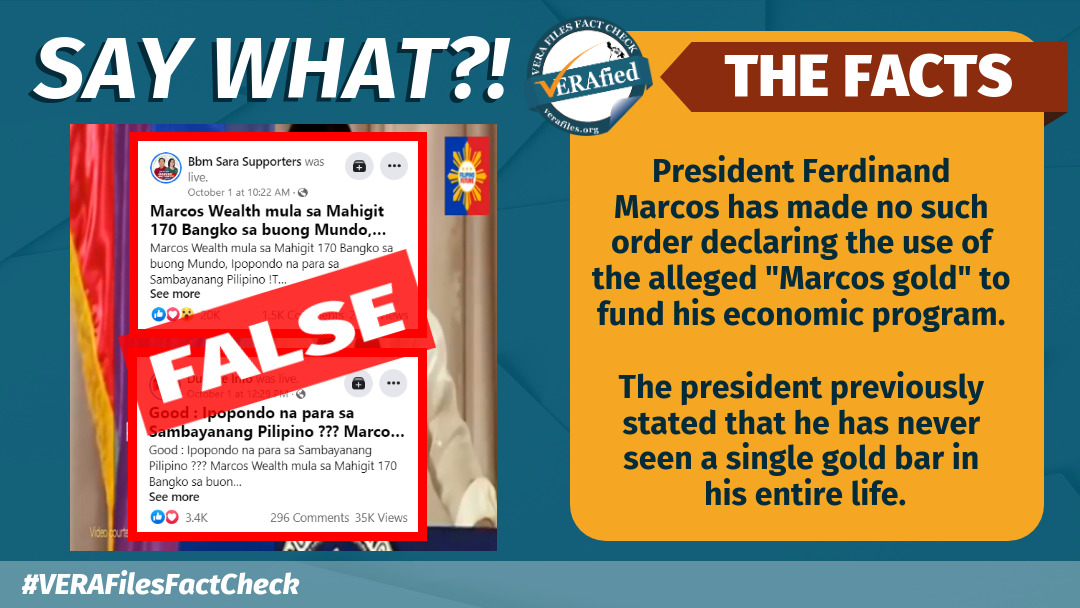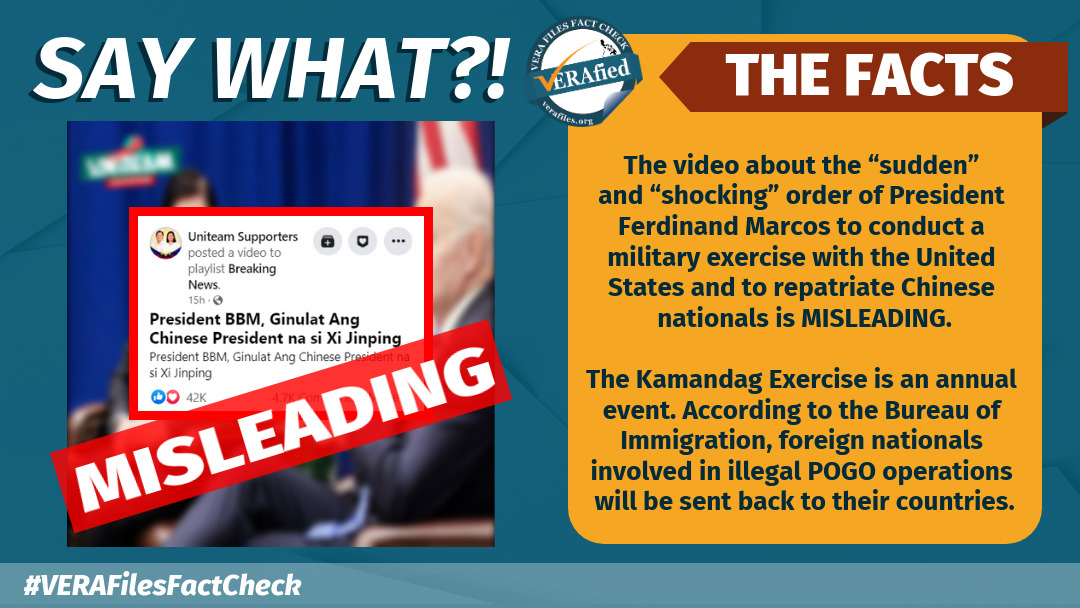![]() STATEMENT: During the CNN vice presidential debate Sunday, candidate Bongbong Marcos, asked about his opposition to the passage of the “sin tax” law, said the measure has nothing to offer those from the affected industries.
STATEMENT: During the CNN vice presidential debate Sunday, candidate Bongbong Marcos, asked about his opposition to the passage of the “sin tax” law, said the measure has nothing to offer those from the affected industries.
Marcos said:
“Sa pagpataas ng ‘sin tax’ ay mababawasan ang ating makikita na produksyon, na wala namang kapalit para doon sa mga umaasa sa mga industriyang yan sa hanapbuhay (Increasing ‘sin taxes’ would lead to decrease in production, without any benefit for those who rely on the affected industries for their livelihood).”
Source: Transcript of vice presidential debate
FACT: The text of the “sin tax” law, Republic Act No. 10351, contains provisions that contradict Marcos’ statement.
The law allocates a portion of the revenue collected from the excise tax on tobacco products to fund a list of programs in tobacco-producing provinces.
“(B) Incremental Revenues from Republic Act No. 8240. – Fifteen percent (15%) of the incremental revenue collected from the excise tax on tobacco products under R. A. No. 8240 shall be allocated and divided among the provinces producing burley and native tobacco in accordance with the volume of tobacco leaf production. The fund shall be exclusively utilized for programs to promote economically viable alternatives for tobacco farmers and workers such as:
“(1) Programs that will provide inputs, training, and other support for tobacco farmers who shift to production of agricultural products other than tobacco including, but not limited to, high-value crops, spices, rice, corn, sugarcane, coconut, livestock and fisheries;
“(2) Programs that will provide financial support for tobacco farmers who are displaced or who cease to produce tobacco;
“(3) Cooperative programs to assist tobacco farmers in planting alternative crops or implementing other livelihood projects;
“(4) Livelihood programs and projects that will promote, enhance, and develop the tourism potential of tobacco-growing provinces;
“(5) Infrastructure projects such as farm to market roads, schools, hospitals, and rural health facilities; and
“(6) Agro-industrial projects that will enable tobacco farmers to be involved in the management and subsequent ownership of projects, such as post-harvest and secondary processing like cigarette manufacturing and by-product utilization.
“The Department of Budget and Management, in consultation with the Department of Agriculture, shall issue rules and regulations governing the allocation and disbursement of this fund, not later than one hundred eighty (180) days from the effectivity of this Act.
It also appropriates financial support for displaced workers in the alcohol and tobacco industries for years 2014 to 2017.
SEC. 9. Transitory Provision. – A special financial support for displaced workers in the alcohol and tobacco industries shall be allocated and included in the appropriations under the Department of Labor and Employment (DOLE) to finance unemployment alleviation program; and to the Technical Education and Skills Development Authority (TESDA) to finance the training and retooling programs of displaced workers, to be included in the General Appropriations Acts for the Fiscal Years 2014 to 2017.
Source: Republic Act No. 10351
What Marcos said in the debate also contradicts an earlier statement he himself has made, reminding the government that tobacco farmers are identified as beneficiaries of excise tax revenues.
A media release, published 14 January 2014 in www.bongbongmarcos.com, quotes Marcos saying:
“It’s very clear in the law that tobacco farmers should receive a certain percentage from the revenues out of the excise tax collection from tobacco products. If the law is very clear on that, the government should make sure that the farmers will get their entitlement.”
Source: bongbongmarcos.com


